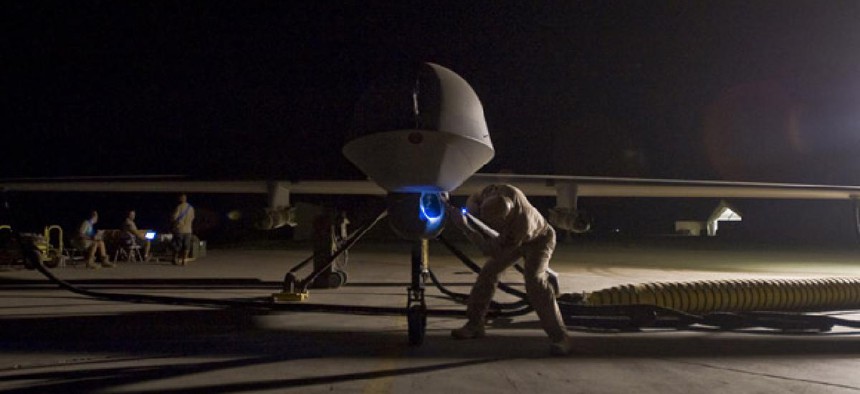What we misunderstand about drones

Air Force
A practice of shoot first and ask questions later, and an over-emphasis on short-term gains, make us more reliant on these tools than we maybe should be.
The New York Times' blockbuster article on President Obama's counterterrorism policies has sparked wide discussion of his evolution into a president focused very strongly on killing terrorists. Americans are also debating the effectiveness and morality of drones. These are important conversations to be having, to which I'd add some of the common misconceptions about drones. The first is that drones are cheap, and the second is that they're replacing other forms of military operations.
Drones might seem like a cheap and easy way to wage war, but that's not always the case. They require a substantial base of operations and support staff to function, which means they can actually cost more than traditional aircraft to purchase and function. And public anger over drones in the targeted countries has created severe political blowback, adding challenges for U.S. diplomacy and influence in parts of the world that are already tough enough to manage.





